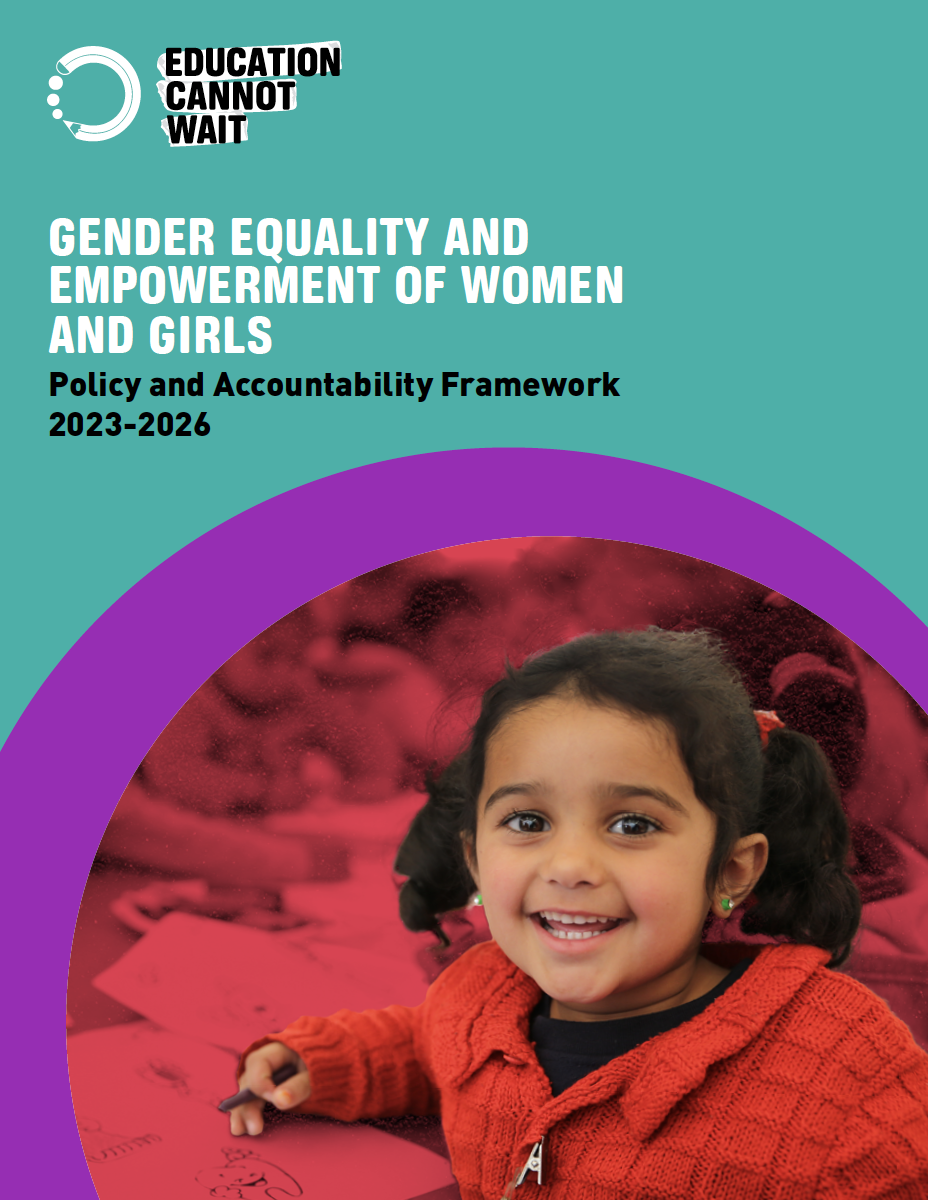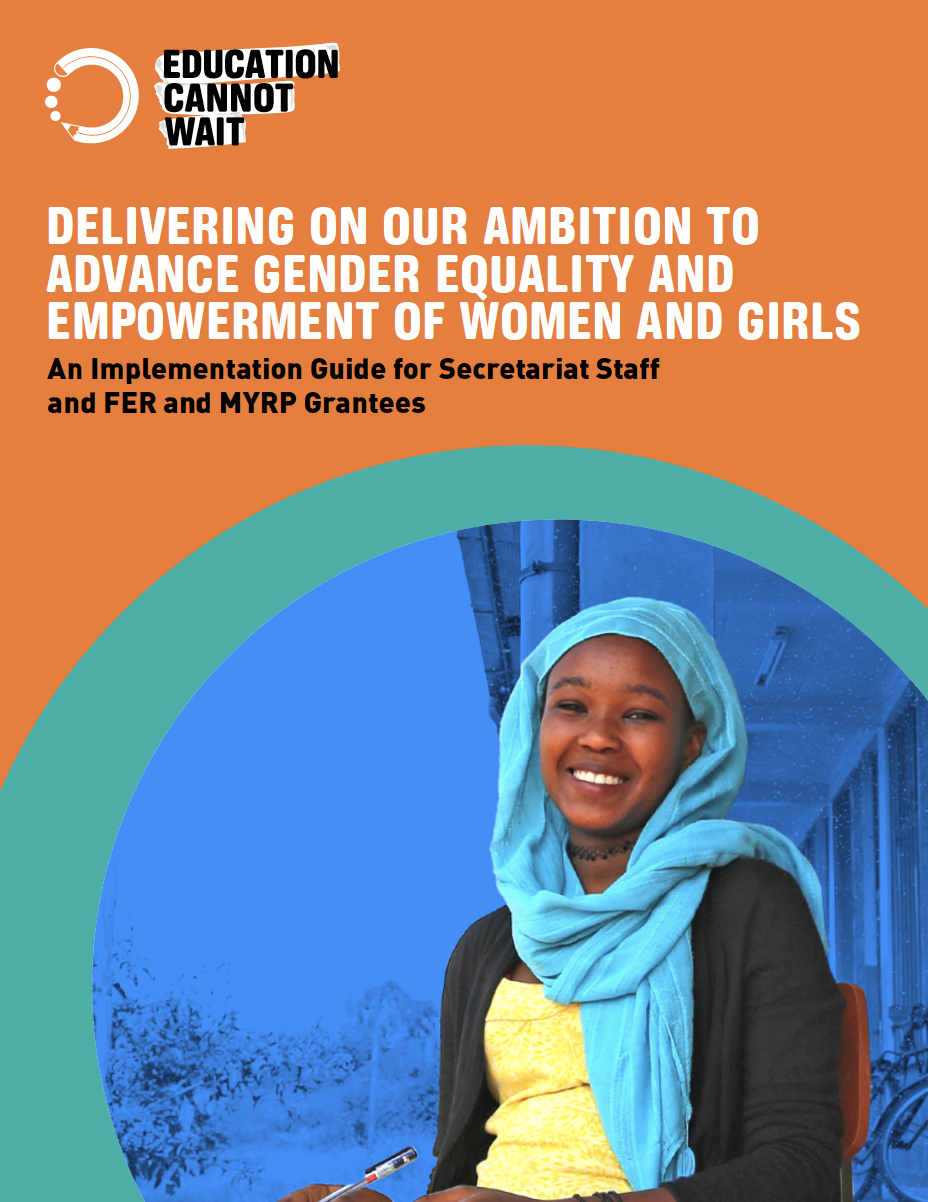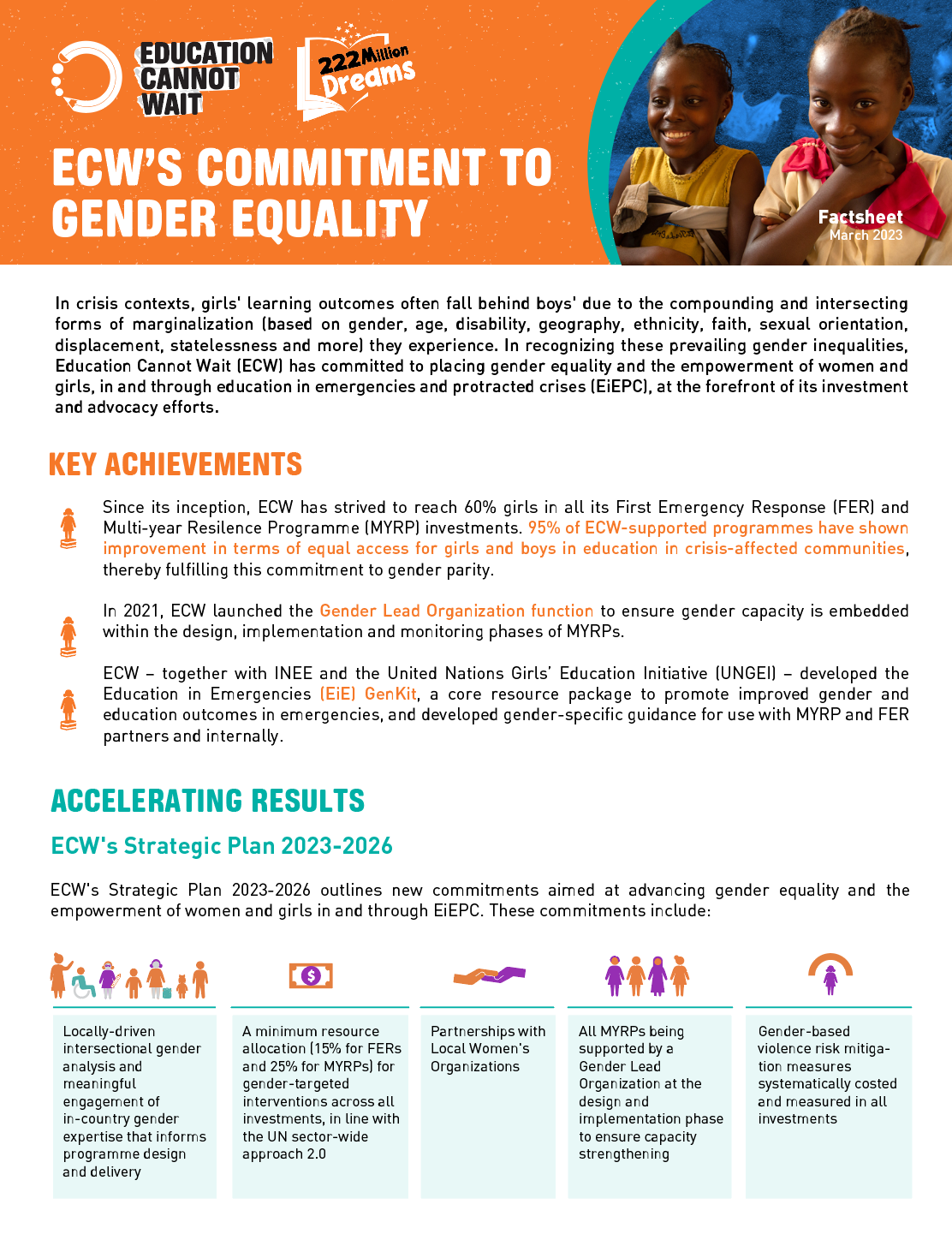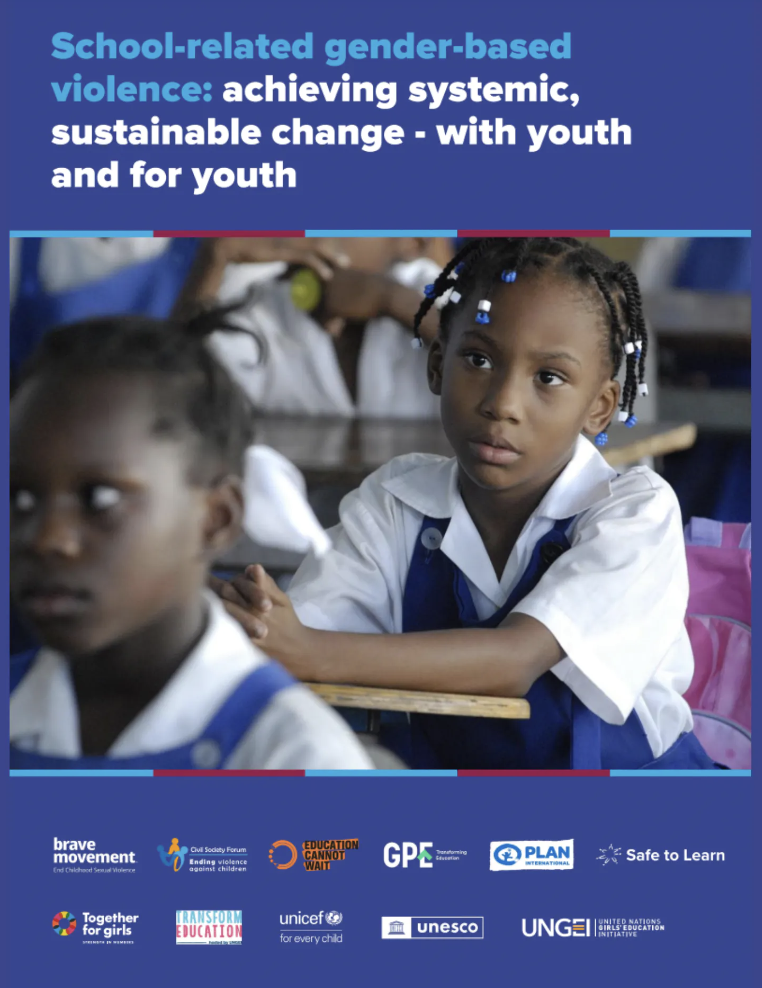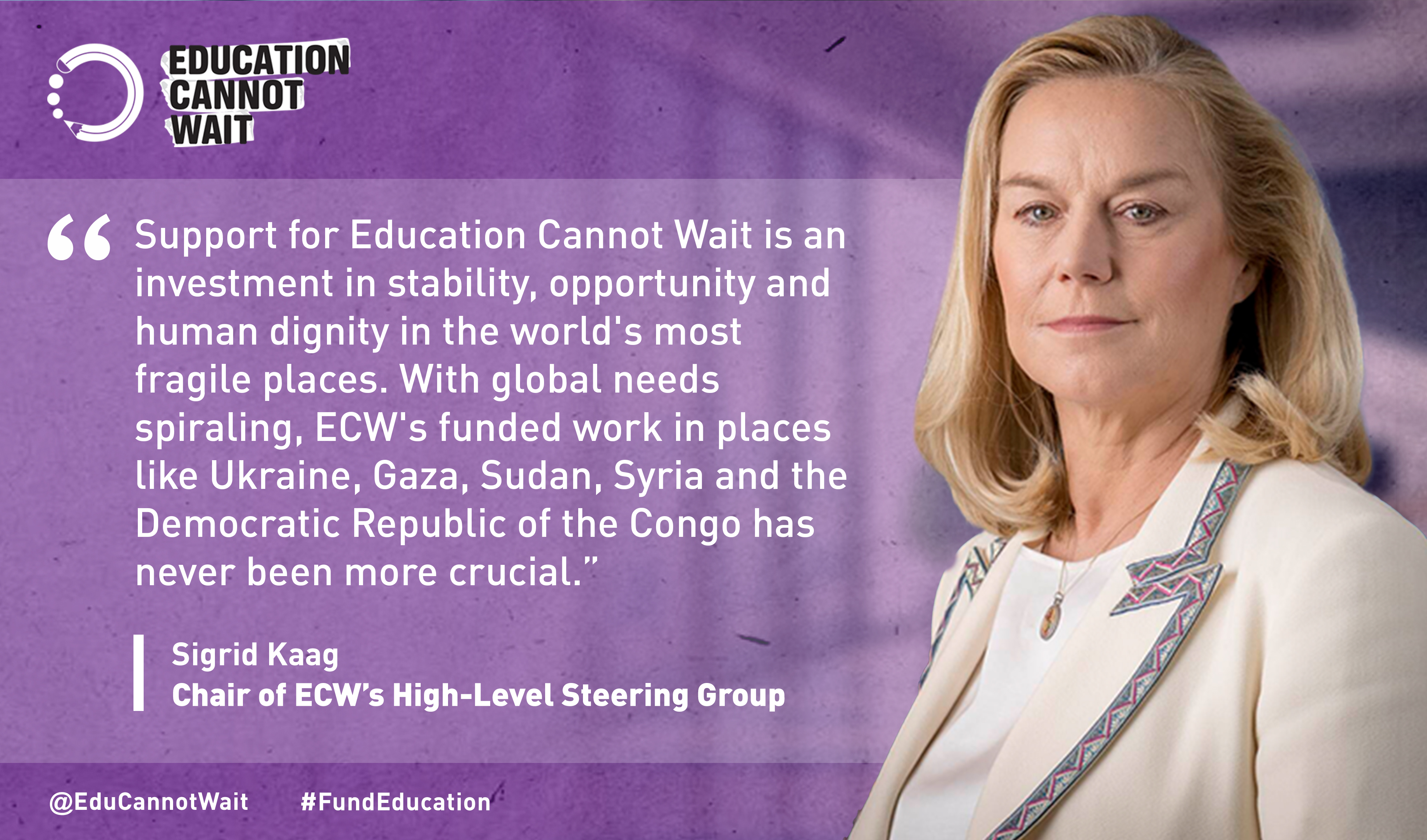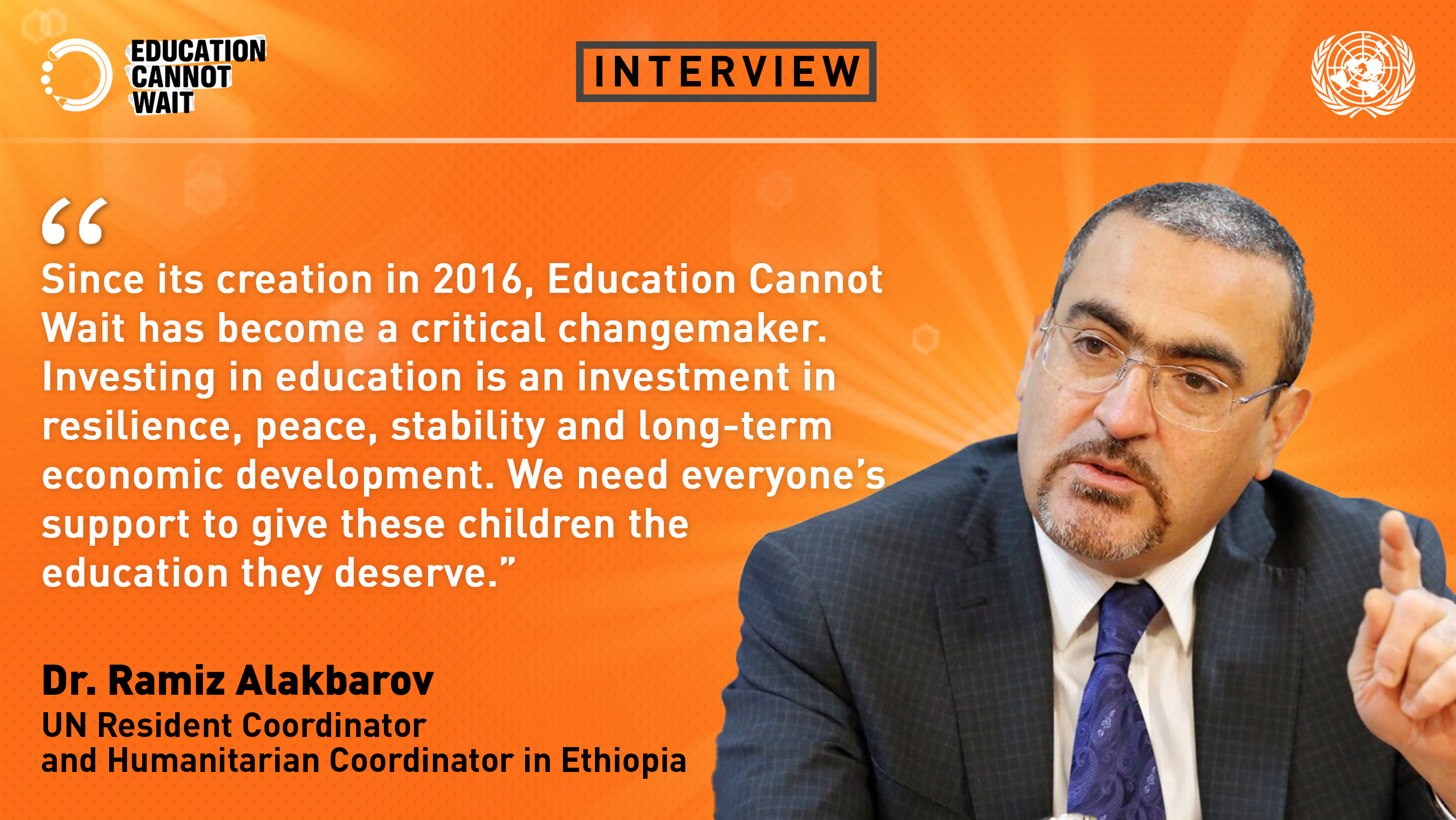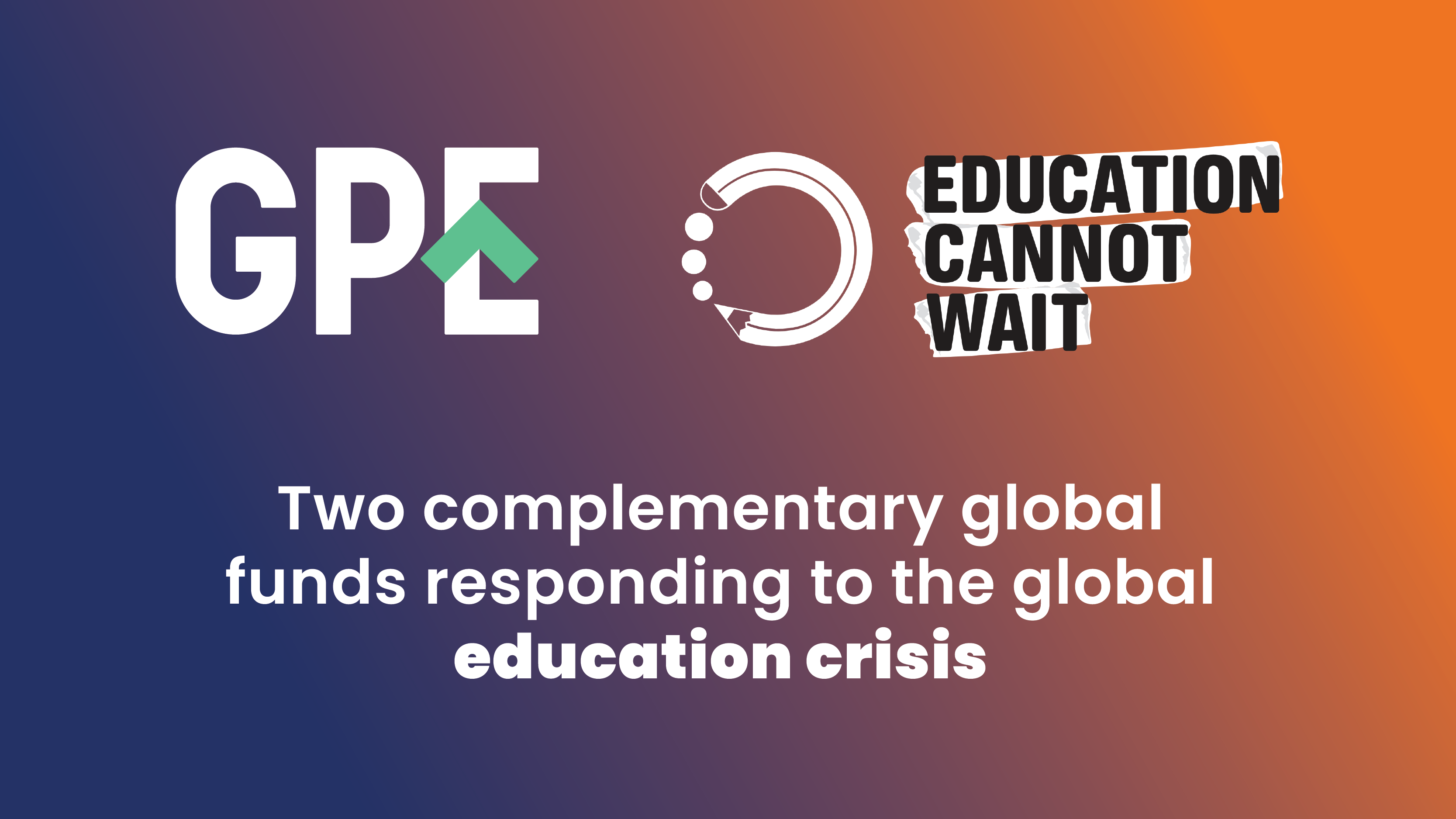ECW Launches New Gender Equality Policy and Implementation Guide

In crisis contexts, girls' learning outcomes often fall behind boys' due to the compounding and intersecting forms of marginalization they experience – and only around a quarter complete their lower secondary education. In recognizing these prevailing gender inequalities, Education Cannot Wait (ECW) has committed to placing gender equality and the empowerment of women and girls, in and through education in emergencies and protracted crises, at the forefront of its investment and advocacy efforts.
This commitment is encapsulated in ECW's two new core publications: Gender Equality & Empowerment of Women and Girls: Policy & Accountability Framework 2023-2026, and Delivering on Our Ambition to Advance Gender Equality & Empowerment of Women and Girls: An Implementation Guide 2023-2026.
"ECW recognizes that educating a girl empowers her to realize her dreams and achieve her goals, with a ripple effect on her family and community," says ECW Executive Director Yasmine Sherif. "Our new Gender Policy and Implementation Guide encapsulate our steadfast commitment to lead the charge, with strategic partners, for gender equality in and through education in emergencies and protracted crises."
ECW commits to advancing gender equality and empowerment of women and girls through three key areas as it delivers on its 2023-2026 Strategic Plan:
- Programming: ECW commits to intentionally investing in gender-responsive FERs and gender-transformative MYRPs
- Partnerships: ECW commits to engaging partners at all levels (including Local Women’s Organizations, United Nations agencies, multi-laterals, private sector and civil society actors)
- Organizational Fitness: ECW commits to being a gender-transformative organization with enhanced ambitions for institutional gender equality and inclusion
New Gender Resources
ECW believes that gender equality in and through education is a basic right for all children and adolescents in all their diversity, including girls, boys, and gender diverse individuals, from early childhood to adolescence, in crisis-affected contexts. As such, ECW recognizes that a focus on gender equality is essential to close inequality gaps and ensure that we leave no child behind, particularly those who are the most marginalized.
Gender inequalities intersect with, and exacerbate, other factors contributing to marginalization, including, disability, refugee status, displacement status, sexual orientation, and gender identity, age, and stage.
ECW’s second Gender Policy and its accompanying Implementation Guide define what ECW must do to ensure gender equality and the empowerment of women and girls is realized systematically through its investments, partnerships and operations in line with the new commitments outlined in ECW’s four-year Strategic Plan:
- Locally-driven intersectional gender analysis and meaningful engagement of in-country gender expertise that informs programme design and delivery
- A minimum resource allocation (15% for FERs and 25% for MYRPs) for gender-targeted interventions across all investments, in line with the UN sector-wide approach 2.0
- Partnerships with Local Women's Organizations
- All MYRPs being supported by a Gender Lead Organization at the design and implementation phase to ensure capacity strengthening
- Gender-based violence risk mitigation measures systematically costed and measured in all investments
The new Policy and Implementation Guide build on ECW’s key achievements to date, including:
- Since its inception, ECW has strived to reach 60% girls in all of its FER and MYRP investments. 95% of ECW-supported programmes have shown improvement in terms of equal access for girls and boys in education in crisis-affected communities, thereby fulfilling this commitment to gender parity.
- Since 2021, the Gender Lead Organization function launched by ECW ensures gender capacity is embedded within the design, implementation and monitoring phases of MYRPs.
- ECW – together with INEE and UNGEI – developed the EiE GenKit, a core resource package to promote improved gender and education outcomes in emergencies, and developed gender-specific guidance for use with MYRP and FER partners and internally.
Learn more in ECW’s 2023 Gender Equality Factsheet.

